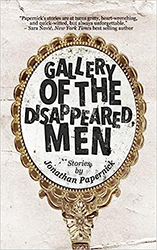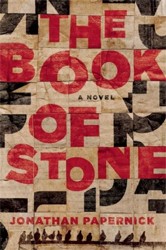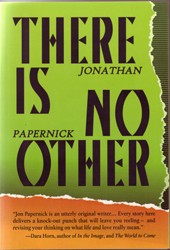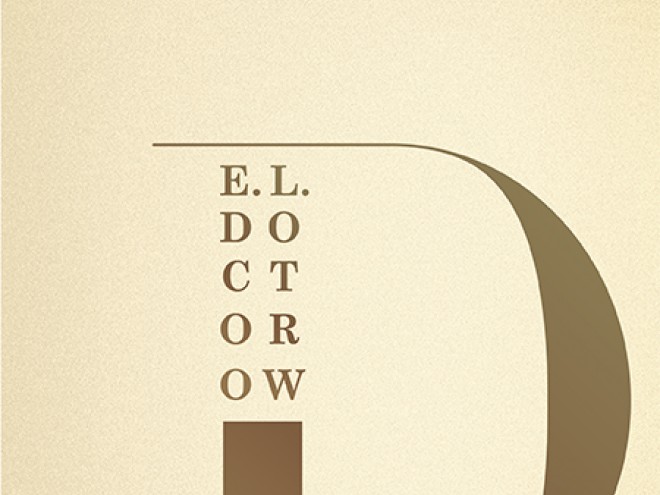Jonathan Papernick is the author of the newly published collection of short stories There Is No Other. He recently wrote to us with the below piece on why short stories are more important now than ever.
 When I tell people that I have just published my second collection of short stories the reaction more often than not is: when am I going to write a novel? I have nothing against novels; I enjoy reading them as much as anybody, and have in fact, already written and published one. What I find strange is not the fact that readers are encouraging me to write a novel — it is the fact that the accomplishment of writing a collection of short stories is almost entirely dismissed as somehow unworthy. More and more the publishing industry seems to be overcome with a blockbuster mentality in which only a few books can rise to the top of the review pages and the bestseller list, while so many other books are not deemed worthy of discussion.
When I tell people that I have just published my second collection of short stories the reaction more often than not is: when am I going to write a novel? I have nothing against novels; I enjoy reading them as much as anybody, and have in fact, already written and published one. What I find strange is not the fact that readers are encouraging me to write a novel — it is the fact that the accomplishment of writing a collection of short stories is almost entirely dismissed as somehow unworthy. More and more the publishing industry seems to be overcome with a blockbuster mentality in which only a few books can rise to the top of the review pages and the bestseller list, while so many other books are not deemed worthy of discussion.Publishers and agents love to say that people don’t read short stories anymore; I don’t believe that. What they’re really saying is that short stories do not make enough economic sense for them. It’s true that a successful novel may sell 50,000 or 100,000 copies, and a successful collection of short stories may sell a few thousand. But, readers should not concern themselves with economics, just good, well wrought stories. With less and less time in our busy lives, short stories are the perfect antidote to the workaday world — an expansive, human experience compressed into a package that can be consumed in its entirety in a half an hour, and sometimes in as little as five minutes. Short stories allow us to walk in the shoes of a characters and understand her hopes and fears and dreams intimately without having to make a three or 400 page commitment that may never be met. What better way is there for a reader to understand a young Jewish girl’s sexual dilemma with her crucifix-wearing suitor than to spend four pages in her mind as she works through the complexities not only of her tradition but also of her expectations as a modern young woman, without the reader actually going through the experience herself? How else can we enter the mind of a religious extremist, or an Iraq war vet, or a girl struggling with her weight, or a drug addict or… the list goes on and on. The fact is, we are better people for reading stories, more understanding, humanistic people, able to empathize with those who are not us. This world needs greater understanding, and a well-written short story can pierce the heart like a bullet and stay with a reader for the rest of her life.
 The Kindle and other e‑book formats make it easier than ever to obtain short stories from online magazines like Narrative magazine and One Story. For the old fashioned reader, One Story also publishes one saddle-stitched pamphlet-sized short story every three weeks that fits perfectly in one’s back pocket or purse — most stories can be read during an average rush-hour subway commute. I’ve recently discovered a great new literary journal called The Drum: A Literary Magazine For Your Ears, which publishes audio versions of short stories that can be easily downloaded to an iPod or iPhone. In the past few years I have certainly come to appreciate micro fiction, stories of 500 words or less, but I’m still having trouble getting my head around Twitter Fiction which is advertised as “Great works of fiction in 140 characters or less.” But, I think I can find the time to let it grow on me.
The Kindle and other e‑book formats make it easier than ever to obtain short stories from online magazines like Narrative magazine and One Story. For the old fashioned reader, One Story also publishes one saddle-stitched pamphlet-sized short story every three weeks that fits perfectly in one’s back pocket or purse — most stories can be read during an average rush-hour subway commute. I’ve recently discovered a great new literary journal called The Drum: A Literary Magazine For Your Ears, which publishes audio versions of short stories that can be easily downloaded to an iPod or iPhone. In the past few years I have certainly come to appreciate micro fiction, stories of 500 words or less, but I’m still having trouble getting my head around Twitter Fiction which is advertised as “Great works of fiction in 140 characters or less.” But, I think I can find the time to let it grow on me.
Due in part to these new innovative ways to bring stories to the reader, I believe that the short story is poised for a renaissance, now it’s up to you, the reader to help make this happen.
Jonathan Papernick is the author of The Ascent of Eli Israel, Who by Fire, Who by Blood, and the new collection of short stories There Is No Other. He will be appearing this summer and fall in farmers markets in New England and New York with his pushcart and his new alter ego Papernick the Book Peddler.
Jonathan Papernick was born and raised in Toronto, Canada. He is the author of the acclaimed short story collection The Ascent of Eli Israel, another collection, There is no Other, and the novels The Book of Stone and I Am My Beloveds. His work has received starred reviews from Publishers Weekly and Library Journal and has been translated into Spanish and Italian. Papernick has taught fiction writing at Emerson College since 2007 and serves as Senior Writer-in-Residence in the Department of Writing, Literature and Publishing. He has two sons and lives with his wife in Providence, Rhode Island.



